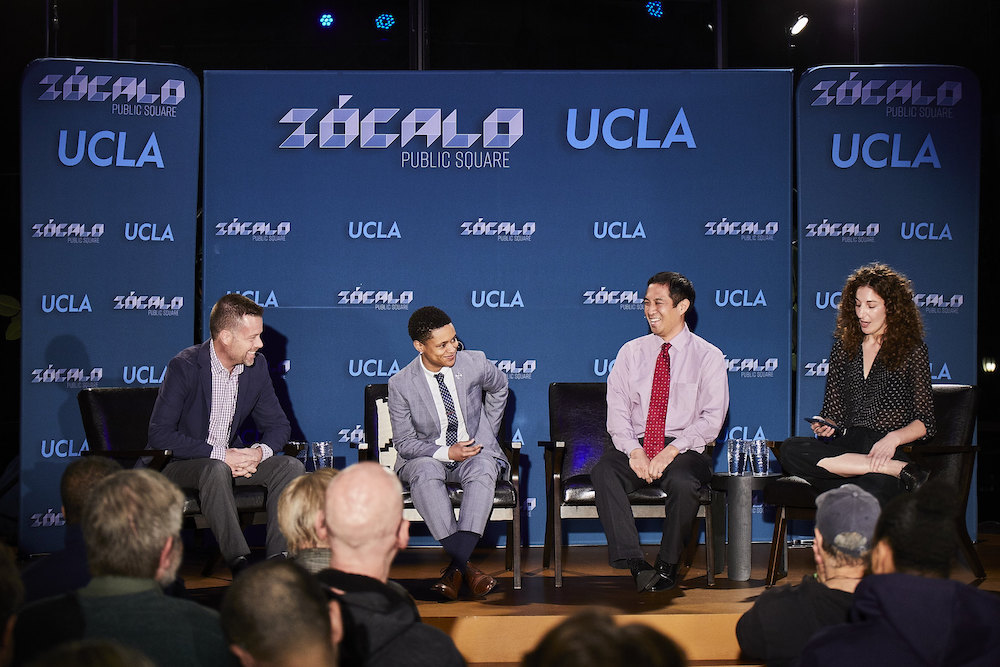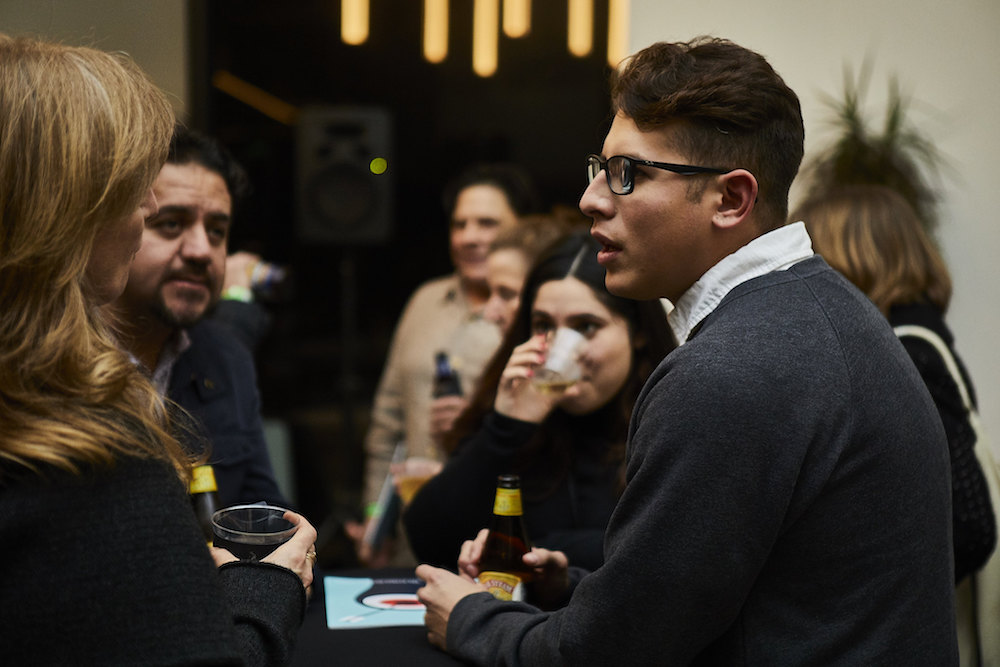
Photo by Jake Fabricius.
California has found that it’s far easier to declare cannabis legal than it is to create a well-regulated cannabis market, said panelists at a Zócalo/UCLA Downtown event titled “Will California Learn to Regulate the Marijuana Business?” and held at Cross Campus DTLA.
Panelists discussed the complicated factors that contributed to a cannabis regulation regime that the event’s moderator, Rolling Stone columnist Amanda Chicago Lewis, referred to as a mess.
It’s taken the Golden State decades to create today’s dysfunction, panelists suggested.
While California holds the distinction of being the first state in the country to sanction the use of medical marijuana in 1996, it took another two decades for California voters to legalize growing and selling cannabis for recreational use among adults.
That legalization, approved in 2016 via the statewide initiative Proposition 64, went into effect on January 1, 2018. In an instant, California became the largest government-sanctioned market in the U.S., but its communities, including L.A., were profoundly unprepared to handle commercial cannabis jurisdiction.
Panelist Cat Packer, executive director of the Los Angeles Department of Cannabis Regulation, noted that the city of Los Angeles did not regulate or formally authorize any cannabis businesses in the city prior to 2018. In 2017, the city did pass, and win voter approval of, legislation that would allow it to tax, regulate, and license cannabis. Eventually, the City Council decided to cap the number of licenses in Los Angeles, allowing for one retail facility for every 10,000 residents.
But it is one thing to say you can regulate and tax cannabis, and quite another to pull it off.
Packer explained some of the complexity through the example of the city’s “social equity” program. The goal was to make sure that those who had suffered arrests and convictions during the drug war would get a chance at 200 or so of the city’s licenses for legal cannabis.
“The social equity program as a concept is this idea that we are going to acknowledge the harm that community members, particularly black and brown community members, experience, and give them some sort of benefit and priority in the licensing department,” Packer said. The city’s team spent “all of 2018 and the greater part of 2019 just trying to figure out what this licensing was going to look like for this last round,” she said.
It’s not an easy question. There are typically three licensing methodologies—”first come first serve”, some kind of merit or scoring mechanism, or a lottery. Ultimately, Packer said, the city council, facing vocal community demands, decided on a first-come, first-serve process.
It’s an imperfect decision.
Panelist Brad Rowe, a UCLA criminal justice and drug policy scholar, said that barring no cap at all, the lottery system is “probably the most democratic.”
But by putting too many barriers toward authorizing legal businesses, you get an environment that allows the illicit market to grow.
“It is the 800-pound gorilla,” Rowe said of the illicit market. “Anyone who’s running a large operation and making money off the books, they have to handle their disputes extrajudicially; they have to carry weapons, and they also are paying off officials. Someone has to turn an eye, so they’re corrupting your public officials or your law enforcement officers.”
From a public health standpoint, the persistence of the illicit business keeps people trapped in situations that cause all kinds of harm, said panelist Tim Fong, a clinical psychiatrist at the UCLA Cannabis Research Initiative.
“The illicit market, the unregulated market, is not good for anybody—physically, mentally, socially, financially—at all,” Fong said.
He shared a story about someone he knew in the business of producing unregulated cartridges for vape pens. “I said to him, ‘How do you do it?’” Fong recalled. The answer was the operators would open up different chemicals and pour them into a pot. “Like a scene out of ‘Breaking Bad,’ he would put on the sterile suit, pour out the juice into containers and pipette it,” he added.
“That [product] unfortunately lands on the stores,” Fong said, “because they get the fancy packaging and they get the budtender saying, ‘We just got a fresh shipment of this, and it’s great, we know you’re going to love it.’ That does not happen in any regulated market. Not alcohol, not tobacco. Can you imagine?”
Audience members showed frustration with the many problems in California’s transition to a legal market. One audience member said that, even as a supporter of legalization, she had voted against state and local ballot measures for legalization because of problems with the policy details. “I read through all the measures and it was a dumpster fire,” she said.
Packer said that L.A. has an enduring conservatism that has made it difficult to tackle cannabis regulation head-on. “There’s still this stigma even when approaching cannabis,” she said.
When Packer was first creating the city’s cannabis regulation department, she had to go to the Office of Information Technology, where they asked her what she wanted the website’s name to be. When she said, “cannabis.lacity.org.,” she recalled, “they were like, ‘Oh my goodness you can’t name it cannabis.’”
“I was like, ‘What am I going to name it?’” Packer replied.





Send A Letter To the Editors